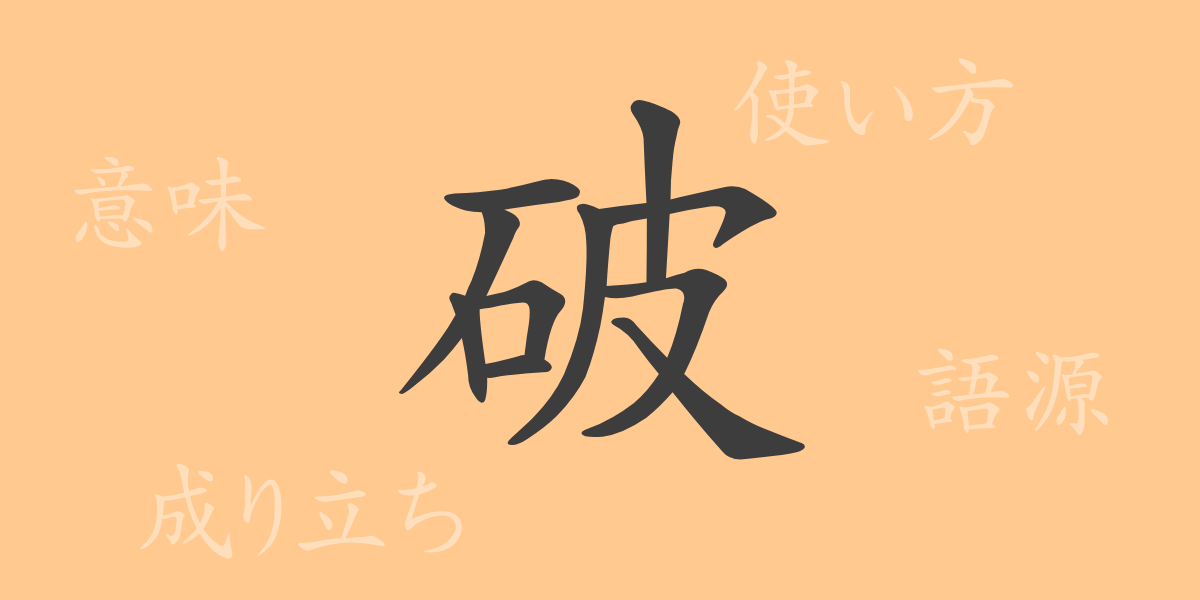Japanese culture is rich with history and meaning, a prime example of which is found in the kanji characters used in the language. One such character, commonly used in everyday life, is “破” (は). This article delves into the origins, meanings, and uses of “破”, exploring how it is interwoven with our words and culture.
Origin of 破 (は)
The kanji “破” originated in ancient China, combining the radical for “stone” (石) with the phonetic component “皮”. Initially symbolizing the act of breaking a stone, it evolved to represent breaking or destroying more broadly. This character symbolizes the forceful act of breaking through the solidity of stone, establishing its form and meanings over time.
Meanings and Uses of 破 (は)
“破” carries meanings related to breaking, tearing, and destruction. It’s used not only for physical destruction but also to describe ending or surpassing abstract concepts or states. For instance, it’s employed in phrases like “to discard a plan” (計画を破棄する) or “to break a record” (記録を破る), as well as in expressing overcoming psychological barriers.
Readings, Stroke Count, and Radical of 破 (は)
“破” is versatile in Japanese, with multiple readings:
- Readings: On-reading is “ハ” (Ha), Kun-readings are “やぶ.る” (yabu.ru) and “やぶ.れる” (yabu.reru).
- Stroke Count: “破” consists of 10 strokes.
- Radical: The radical of “破” is “石” (stone), used to categorize kanji related to stones.
Phrases and Proverbs Including 破 (は)
“破” appears in many idioms and proverbs, reflecting its versatility in Japanese:
- “破天荒” (はてんこう) – doing unprecedented or revolutionary things.
- “破産” (はさん) – bankruptcy, financial ruin.
- “破局” (はきょく) – an end of a relationship or situation.
- Proverb: “破れ鍋に綴じ蓋” (やぶれなべにとじぶた) – a mismatched but effective pairing.
Summary on 破 (は)
The kanji “破” reflects destruction and change, imbuing the Japanese language with a dynamic range of expressions. From physical destruction to surpassing records, or concluding relationships, “破” conveys powerful imagery within our words. Understanding the depth of this character enriches our choice of words, making our communication more vibrant and precise.

























